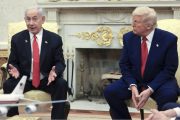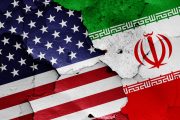
At the conclusion of a meeting of NATO ministers held Friday in Wales, President Barack Obama made his clearest statement yet of how the government of the United States plans to deal with ISIS.
“We are going to degrade and ultimately defeat ISIL, the same way that we have gone after al Qaeda,” he declared. “You narrow their scope of action. You slowly shrink the space, the territory that they may control. You take out their leadership. And over time, they are not able to conduct the same kinds of terrorist attacks as they once could.”
ISIL is a synonym used by many in the Obama administration for the organization more widely referred to as ISIS. ISIL is an abbreviation for the Islamic State of Iraq and the Levant.
If the United States carries out this threat to go after ISIS the way it has “gone after al Qaeda,” then Americans should prepare for an increasingly crushing debt as the materiel for this latest war is bought with money borrowed from China.
Later in his statement, the president committed to working with “partners on the ground” to “push back against ISIL.” In other words, the United States will send weapons to “moderate” rebels in order to defeat “militant” rebels of another stripe.
Has this policy ever worked?
A relevant question that seems never to be asked is if the United States is at war with everyone, are we really at war with anything?
That is to say, in this undeclared, unconstitutional, unending War on Terror, who is the enemy and what have they done to justify U.S. bellicosity?
A quote by Peter the Great included in an article written by Eric Margolis on this very subject illustrates the point: “He who defends everything, defends nothing.”
There’s little hope that the United States will resist the temptation to go back to the Chinese ATM and withdraw enough money to buy missiles and materiel to fight wars against ISIS in Iraq; the Taliban in Afghanistan; al-Shabab in Ethiopia; the al-Qaeda in the Arab Peninsula (AQAP) in Yemen; Boko Haram in Nigeria; “militants in Pakistan; etc., etc.
If, then, the United States is perpetually at war and perpetually expanding that war without even the most perfunctory nod toward the Constitution, what is the ultimate aim of the constant call for war made by the neocons, war hawks, and other congressmen funded by the military industrial complex?
Perhaps the answer is found in a warning delivered in 1795 by James Madison. Madison wrote:
Of all the enemies to public liberty war is, perhaps, the most to be dreaded, because it comprises and develops the germ of every other. War is the parent of armies; from these proceed debts and taxes; and armies, and debts, and taxes are the known instruments for bringing the many under the domination of the few. In war, too, the discretionary power of the Executive is extended; its influence in dealing out offices, honors, and emoluments is multiplied; and all the means of seducing the minds, are added to those of subduing the force, of the people. The same malignant aspect in republicanism may be traced in the inequality of fortunes, and the opportunities of fraud, growing out of a state of war, and in the degeneracy of manners and of morals engendered by both. No nation could preserve its freedom in the midst of continual warfare.
As Secretaries John Kerry and Chuck Hagel team up with President Obama to put the full court press on politicians, trying to convince them to get behind military action against ISIS (aka ISIL), Americans should not get bogged down arguing about the pros and cons of such a policy and focus instead on the irreparable harm that “continual warfare” poses to the preservation of liberty.
Photo of President Obama: AP Images
Joe A. Wolverton, II, J.D. is a correspondent for The New American. Follow him on Twitter @TNAJoeWolverton.




